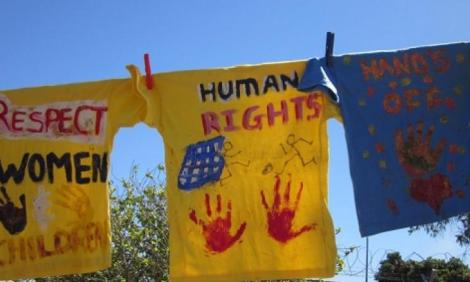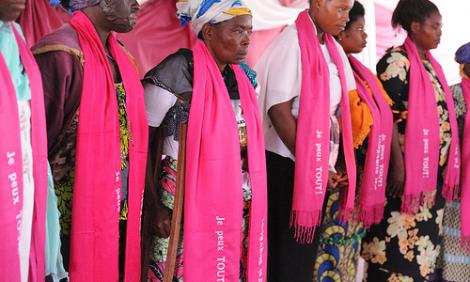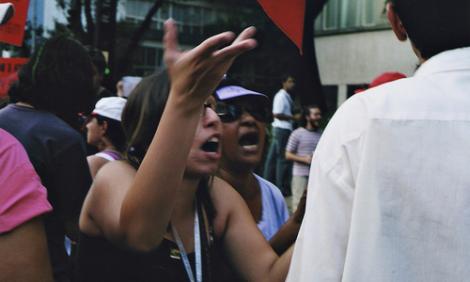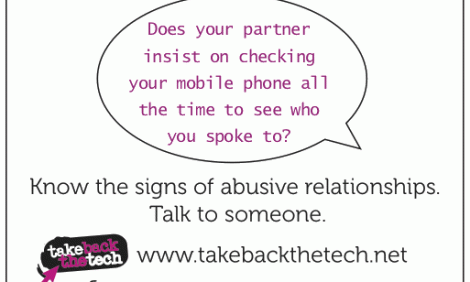
In depth
UPR of South Africa: Connecting the right to communication to women´s rights
South Africa's constitution guarantees freedom of expression, and has been interpreted to include the right to community media and to creative journalistic content. However, these progressive interpretations come in the light of broadcasting, rather than the internet. Online media and its regulation in South Africa fall short of the human rights standards that South Africa has recognised under…

In depth
Going online is the same as going out to a rally
In early April 2012 in Istanbul thirty people from six continents met at the APC “Dialogue on digital security and women's human rights defenders” to discuss regional and global trends on digital security, freedom of expression and freedom of association, and their impact on women's human rights defenders. Katerina Fialova and Sonia Randhawa interviewed two of the participants to interrogate/…
Feminist talk
Digital Security: Drop-in centre of Ugandan sex worker organisation raided
“Sex work may be illegal in Uganda, but providing services for sex workers is clearly not,” reads a statement put out on May 9 by WONETHA, a health and human rights organisation, in reaction to a serious crack-down on its activities by Ugandan municipal police.

Feminist talk
Anonymity, accountability and the public sphere
I found myself being confronted with the issue of anonymity and accountability in different ways at the AWID Forum. At the Feminist Tech Exchange (FTX) and Connect Your Rights events that took place just before the Forum, we discussed about the different and increasingly sophisticated ways that internet technologies have been used to erode any sense of anonymity online.
Feminist talk
Filtered by the state, inspired by Gita Sen
Today Gita Sen said “we are in a fierce vicious unequal new economic world where battlegrounds are many” and a few hours later in the session on “Commodification of knowledge: how increasing access and availability of the internet had transformed the way knowledge is produced and shared” a participant made us notice that “We were being watched." And it's true behind the gorgeous beauty of…
Feminist talk
Anonymize yourself: digital security and feminist practice of technology
As the day passed I saw myself surrendering to the fact that there is nothing good in the laziness of a routine that prevent us from thinking about technological abuse that we as women activists can suffer and make the other suffering. When on the 18 we had the feminist tech exchange I understood that I need, I have to anonymize myself.

Feminist talk
FTX @ AWID Forum 2012
What are the emerging risks and challenges that women's rights advocates face in using technology for activism? How can we strategise to work more safely and securely online? What is the feminist politics of privacy, security and the right to participate on the internet? Join us at the Feminist Tech Exchange on 18 April 2012, just before the 12th AWID International Forum, to explore and exchange…

Editorial
Daysi Flores: SOME THOUGHTS AROUND ... Discovering worlds and sharing resistances online
A girl growing up in the 80s in Central America, in Honduras, who went to state schools had few chances to access any type of technology. It was even difficult for us to access books as a source of knowledge, and letters were a form of communication to which only some of us had access. All of the music - other than the music that my mother listened to - was only available in English...
Publication
Take Back The Tech! Be safe
The Take Back the Tech! Be Safe website section offers tips and ideas on steps women and girls can take to make their online experiences safer. It addresses security issues regarding privacy (emails, online chats, password protection, mobile phones), prevention of cyberstalking or secure online browsing.

In depth
It's time to stand up and be counted
If we want to tackle the problem of gender-based violence online, we need to develop a strong evidence base, argues Grady Johnson in this article. At the risk of revisiting old traumas, we need women to document the scope of the problem, so that the gravity of the situation can no longer be denied. Most of all, we need good numbers if we hope to make good policies.




